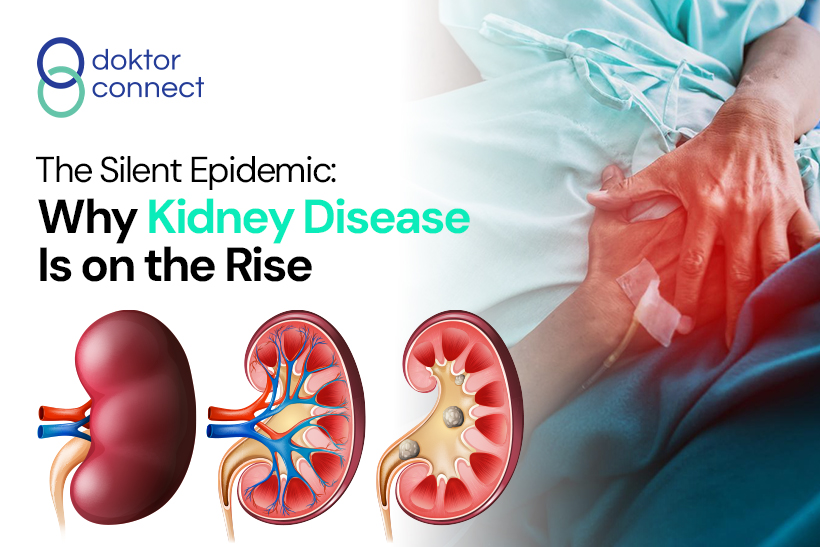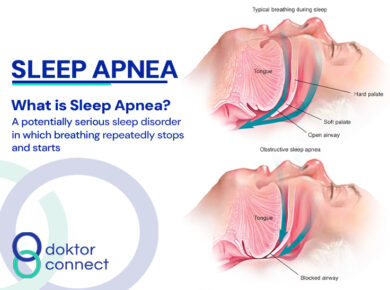Your Kidneys Are in Trouble. Here’s Why It Matters
Chronic kidney disease (CKD) is becoming one of the fastest-growing health problems worldwide. Despite its serious impact, most people don’t notice it until it’s too late. The kidneys are vital organs that filter waste, balance fluids and electrolytes, regulate blood pressure, and support red blood cell production. When they start to fail, the damage is often silent, progressive, and irreversible but largely preventable
What’s Driving the Rise in Kidney Disease?
Several modern lifestyle factors are fueling the spike in kidney damage and dysfunction:
- Diabetes & Insulin Resistance
High blood sugar damages small blood vessels in the kidneys
Type 2 diabetes is the #1 cause of kidney disease globally
- High Blood Pressure
Constant pressure on kidney blood vessels leads to gradual failure
Hypertension is the #2 cause of kidney damage
- Poor Diets High in Processed Foods & Sodium
Excessive salt, sugar, and artificial additives stress the kidneys
Low intake of potassium-rich foods like fruits and vegetables worsens the problem
- Overuse of NSAIDs and Painkillers
Frequent use of drugs like ibuprofen and naproxen can reduce blood flow to the kidneys over time
- Chronic Dehydration
Not drinking enough water means less waste is flushed, putting more strain on kidney filtration
- Toxins & Environmental Pollutants
Pesticides, heavy metals, and plastics increase the toxic load on the kidneys
- Neglect of Early Warning Signs
Many ignore early symptoms like fatigue, swelling, and changes in urine until it’s advanced
Symptoms of Kidney Stress or Disease
✅ Fatigue & low energy
✅ Swelling in feet, ankles, or face
✅ Foamy, dark, or bloody urine
✅ Frequent urination (especially at night)
✅ Muscle cramps & restless legs
✅ Difficulty concentrating (“brain fog”)
✅ Persistent high blood pressure
✅ Metallic taste in mouth or ammonia breath
Many of these symptoms show up late. Up to 90% of kidney function can be lost without obvious signs
How Is Kidney Disease Diagnosed?
Doctors use a combination of tests:
-
eGFR (estimated Glomerular Filtration Rate): Measures how well your kidneys are filtering
-
Urine tests: Checks for protein (a sign of kidney damage)
-
Blood pressure monitoring
-
Imaging or biopsy in severe cases
How to Support Kidney Health Naturally
🥦 Adopt a Kidney-Smart Diet
-
Focus on whole foods, leafy greens, berries, and omega-3 fats
-
Reduce sodium and avoid processed, packaged foods
-
Cut back on animal protein and phosphorus-heavy items if kidney function is declining
💧 Stay Hydrated but Wisely
-
Drink clean, filtered water daily
-
Avoid sugary drinks, alcohol, and excessive caffeine
🚶♂️ Manage Blood Sugar & Blood Pressure
-
Regular movement, quality sleep, and stress management are essential
-
Reduce refined carbs and added sugars
🚫 Avoid Overusing Medications
-
Use NSAIDs only when necessary and under guidance
-
Ask your doctor about kidney-safe alternatives
🌿 Support Detox Pathways
-
Your kidneys are filters support them with antioxidants (e.g vitamins)
When to Seek Medical Advice
You should talk to a healthcare provider if you:
-
Have a family history of kidney disease, diabetes, or hypertension
-
Notice any changes in urination patterns
-
Experience persistent swelling, fatigue, or back pain
-
Are taking medications long-term that may impact kidney health
Final Thoughts
Kidney disease is rising not because it’s inevitable, but because modern lifestyles neglect the foundations of kidney health. By becoming aware of the early signs and making intentional changes, you can protect your kidneys before symptoms start.
Don’t wait for a diagnosis. Start protecting your filters today!




